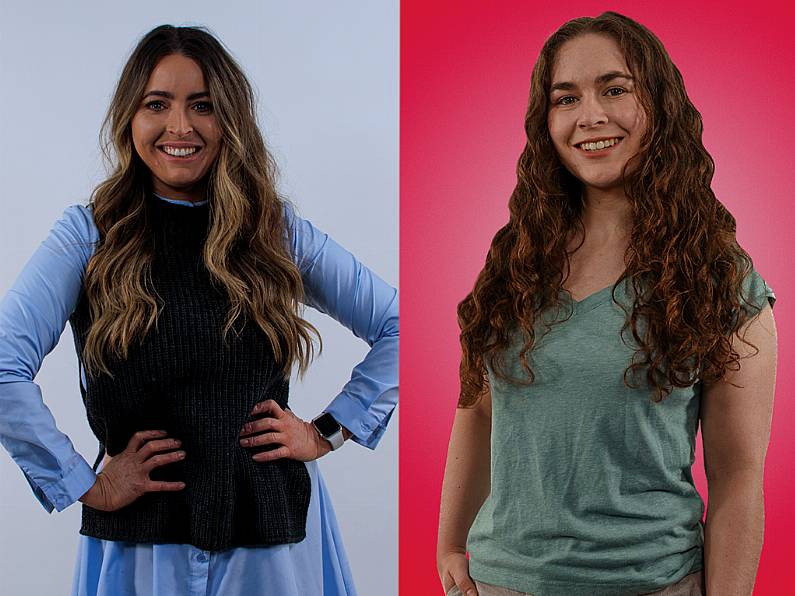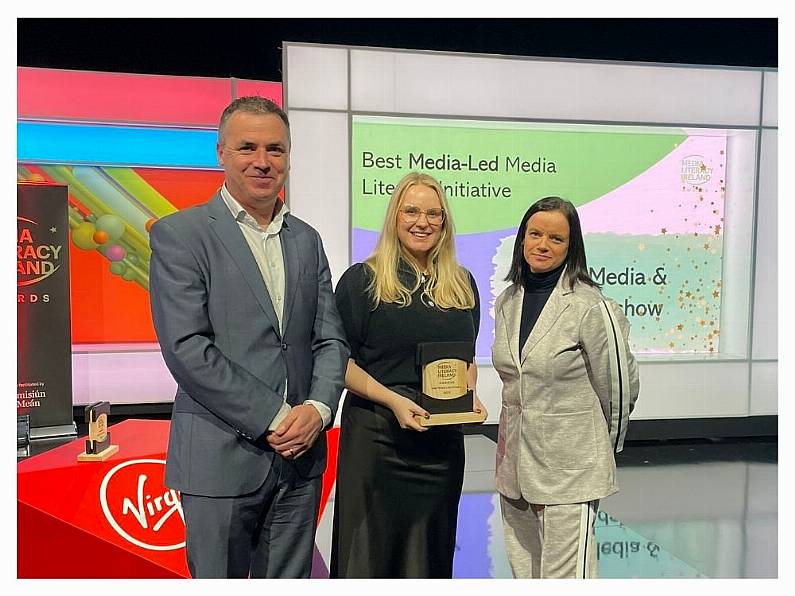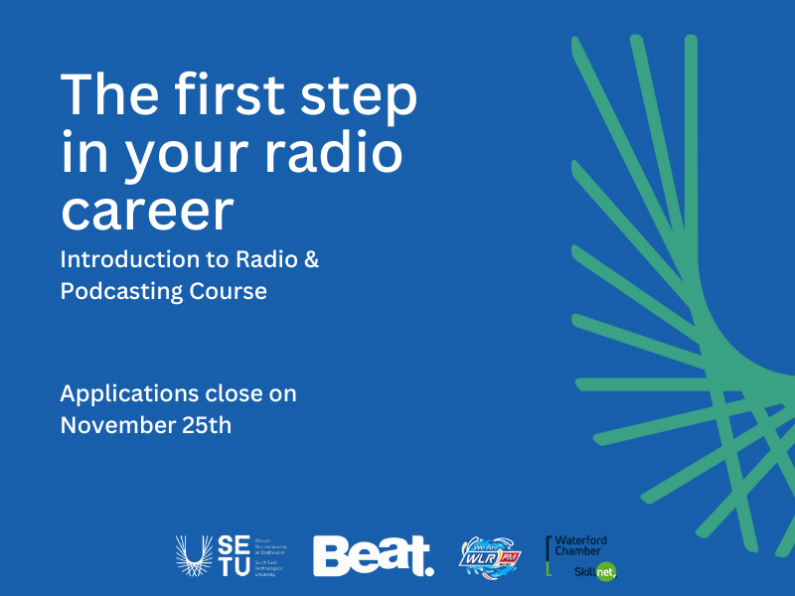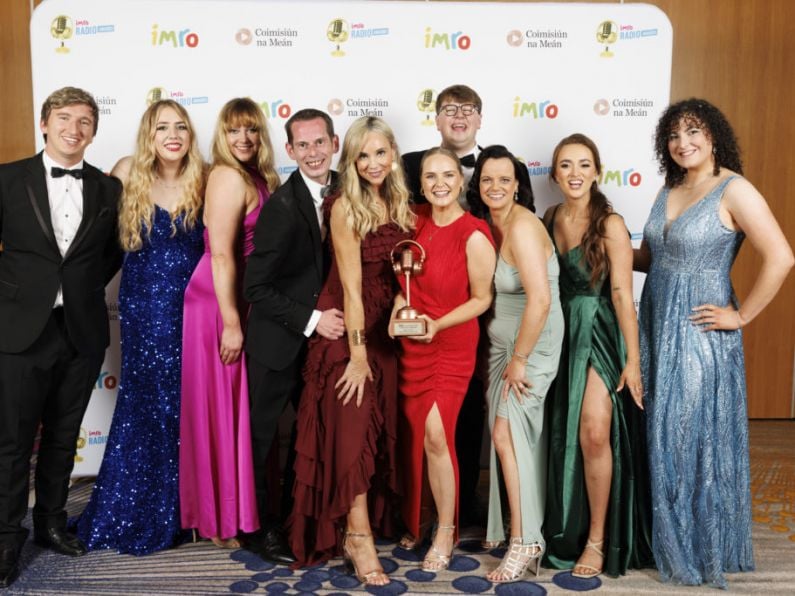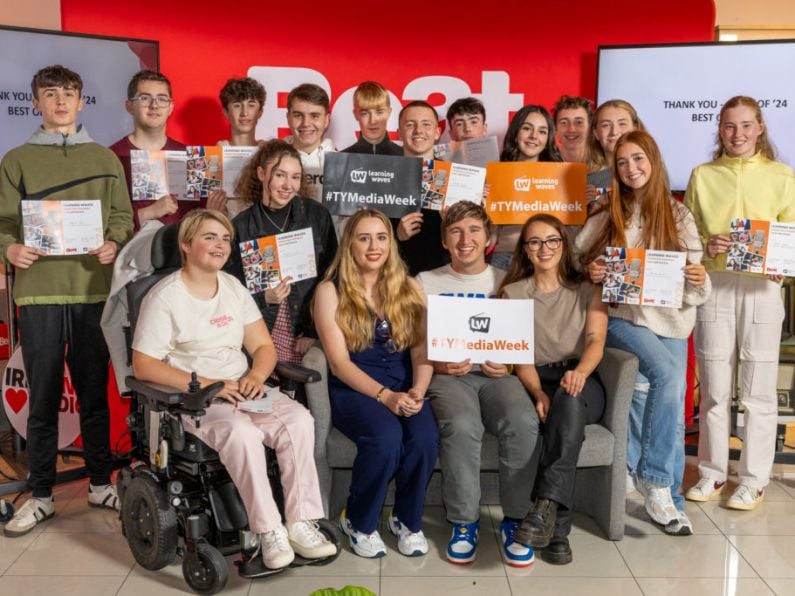Beat’s Certificate in Radio Broadcast & Presenting jointly developed with WLR FM, the South East Technological University (SETU) and Waterford Chamber Skillnet has rightly established itself as a regular producer of skilled and enthusiastic radio presenters who have gone on to create content at both local, regional, and national levels.
Two recent graduates, Tipperary’s Ellie Mackey and Ali Reville from Waterford speak about their experiences and how the skills they honed during the course kickstarted their radio broadcasting journey.
Ellie Mackey presents the Irish-language show Music de Domhnaigh on Beat
What broadcasting or media experience did you have before applying for the Broadcast Course?
During lockdown, I became a board member of a Danish songwriting group, and I helped them organise online concerts and open mic nights through live streaming. I became a regular host of these featured songwriter nights and interviewed songwriters from all around the world. Live Streaming was a great tool during covid times when “In person” gigs weren’t possible, and it definitely helped me to realise my potential for presenting which I went on to pursue later.
What elements of the course did you find most beneficial with regard to gaining employment in the sector?
As part of our final project, we had the opportunity to borrow mics and recording equipment in order to conduct interviews. We also had studio time in the Broadcast Centre, both of which were invaluable hands-on practical experience.
Is there anything you learned about the industry during the course that you didn't know before?
We were really lucky to have guest speakers come in and give talks on specific areas of the industry. I gained huge insights into the world of journalism from WLR’s Damien Tiernan and I found Niall Power’s talk on Beat’s music scheduling fascinating.
What parts of the course were the best craic?
The classroom discussions between students and lecturers were actually the best. The students on the course were all from different backgrounds and interested in different areas within the industry, which made for very enjoyable and sometimes heated debates on current affairs.
What parts were the most challenging?
Editing audio was the most time-consuming part of the coursework. I had some experience with editing software having previously studied music production as part of my music degree. But getting the levels right for speech is very different to instrumentation and that’s something I definitely felt I could improve on.
Tell us about your final project. What was it about and how did you approach it?
My project focused on sea swimming. I was living in Tramore at the time and had spent most of the winter months doing it myself. I interviewed locals about their experience of sea swimming, included vox pops about Dry Robes and had the pleasure of conducting a phone interview with local councillor, Lola O’ Sullivan, about water safety.
Did the broadcast course help build your confidence when it came to broadcasting?
Yes, the exercises we carried out in class helped prepare us for our project work, and just by carrying out the project itself you have to go outside your comfort zone. Approaching random strangers for an interview is daunting at first but over time you get more comfortable with it and it just becomes part of the job. Also, the support we received from industry professionals on the course is immense. I’m very grateful for everyone who gave me feedback on my project and work experience along the way because each one of them has helped me get to where I am now.
Has the Broadcast Course inspired you to pursue a career in radio?
100% Yes. I got a phone call for a position as a music festival reporter within two weeks of finishing the course. And I never would have believed that a year later I’d have my own show on Beat 102 103. It’s an absolute dream job and I couldn’t imagine myself doing anything else.
__________
Waterford’s Ali Reville is a regular contributor to WLR FM’s Big Breakfast Blaa
What broadcasting or media experience did you have before applying for the Broadcast Course?
I had been working on the WLR Street Team and I did some cover work on WLR co-presenting the Big Breakfast Blaa - I knew straight away I wanted to learn more!
What elements of the course did you find most beneficial with regard to gaining employment in the sector?
Getting to chat and meet with current presenters and people in the industry really gave us an insight into how the industry works and what you need to make it. They gave great advice and we got to see some behind-the-scenes work that you don't always see or hear. Also, getting the confidence to be able to put together a piece of audio from scratch. From brainstorming ideas, gathering interviews and vox pops, learning how to use the software and editing everything together. Being familiar with this will give you an advantage to gaining employment as you have learned a range of different skills needed in the sector.
Is there anything you learned about the industry during the course that you didn't know before?
I loved learning about all the behind-the-scenes work that goes into each idea and show. From events to competitions, social media posts to press releases; it's so much more than what you hear on air. We learned about the different types of broadcasting and how they work (state, public and commercial) and also the different types of shows eg: documentaries, podcasts and what makes them different, how to build them and how to present them. Radio was relatively new to me before I did the course so it definitely gave me an understanding of how it works and a taste of what it would be like to work in the industry.
What parts of the course were the best craic?
Chatting to Rob and Orla and anyone else who came in to talk to us. I also loved sharing and hearing everyone's ideas and doing pretend interviews with each other. By the last week we were like one big family so we had so much fun listening to all our projects. There was no bad competition on the course. Everyone wanted to help each other and just enjoy it.
What parts were the most challenging?
For me, it was the editing of my project. We spent a good few weeks practising this which was absolutely needed (thank god for Rob's patience!) It took me a long time to get the hang of it. I got there in the end but it's definitely a skill that can always be improved so I will continue to practice!
Tell us about your final project. What was it about and how did you approach it?
For my project, I was a presenter on The Big Breakfast Blaa. I did some cover work on it before I started the course and I absolutely loved it so I thought if I could present anything in the world right now it would probably be a breakfast show. I planned out a two-hour show, the first hour being very upbeat and fun. I had a live caller where they won $1000 for playing a game I came up with called 'What in the name of God was that'. I gave the caller some sounds (eg: car starting, internet dial-up, phone alarm, radio jingle) and they had to make the sounds back to me. This was so much fun to do! I played some lively mood-booster songs and also gave teasers for what was coming up later on the show.
For the second half of my show, I did a segment on 'Oliver' the musical which took to the stage in the Theatre Royal in April. I caught up with some of the cast members backstage and got an inside scoop on what goes on in rehearsals and show week. I also got some recordings of their musical numbers while they were rehearsing. All followed by some more catchy tunes!
Did the broadcast course help build your confidence when it came to broadcasting? If so, how?
Absolutely! I feel more familiar with the radio and broadcasting industry since doing the course, I now know what it takes to work in this sector. It has given me the independence and confidence to go out and gather my own content and know how to do it right! I'm also now capable of editing pieces of audio together, not to mention the interview skills and creative skills I gained through this course.
Has the Broadcast Course inspired you to pursue a career in radio?
It is a dream of mine to become a full-time presenter and producer. I had found my passion for radio before doing this course, but my skill set wasn't where it needed to be. It is a big ladder that I am beginning to climb and since completing this course I feel I am now ready to apply for upcoming jobs in the industry.
